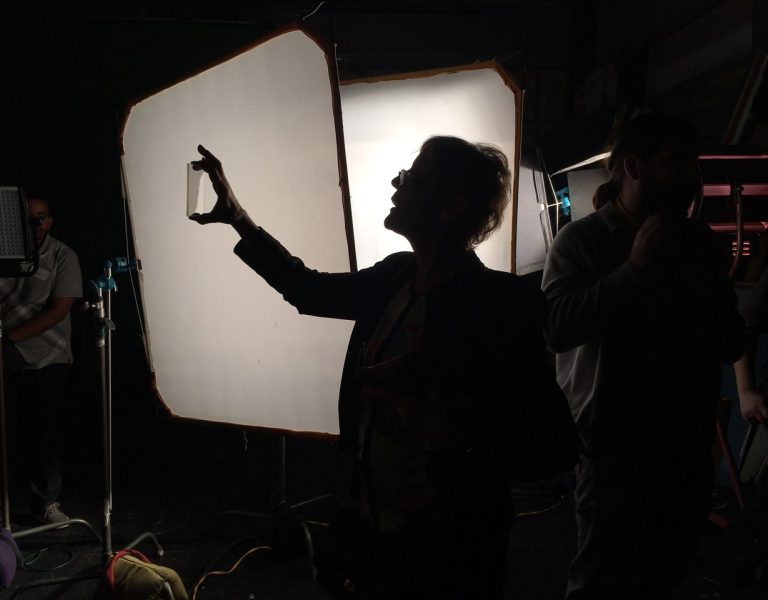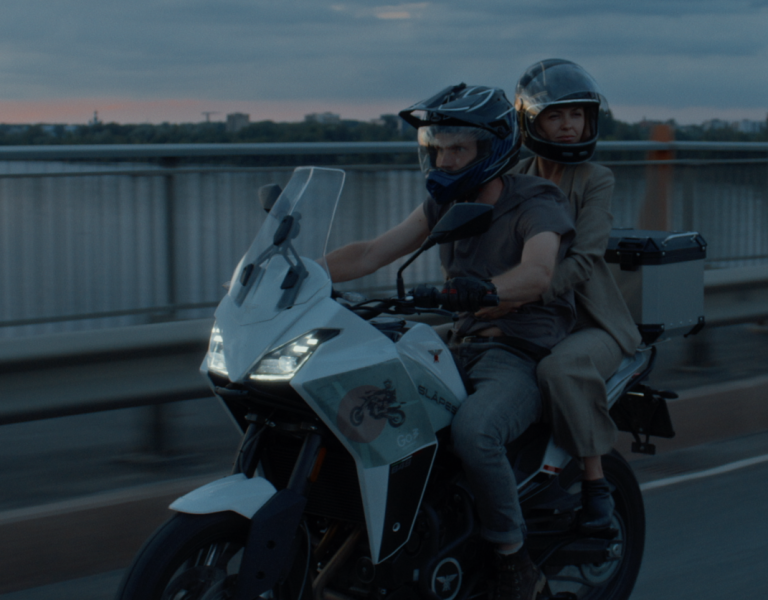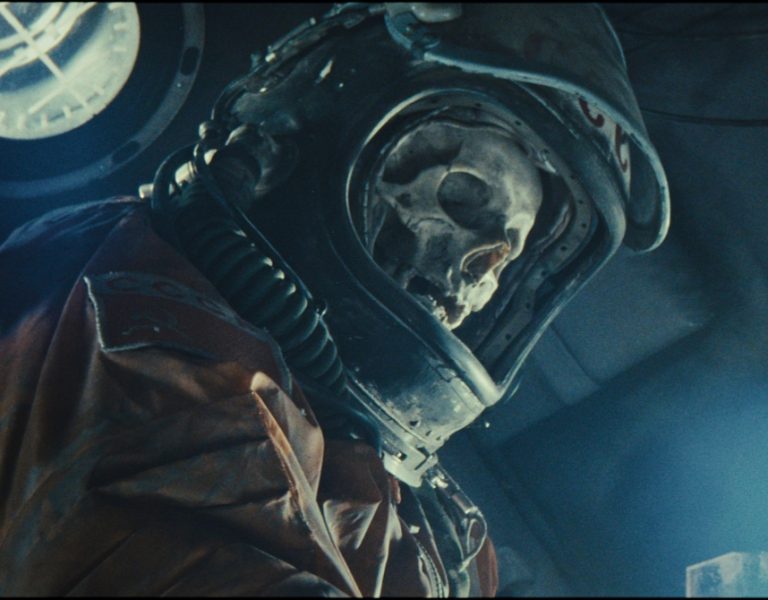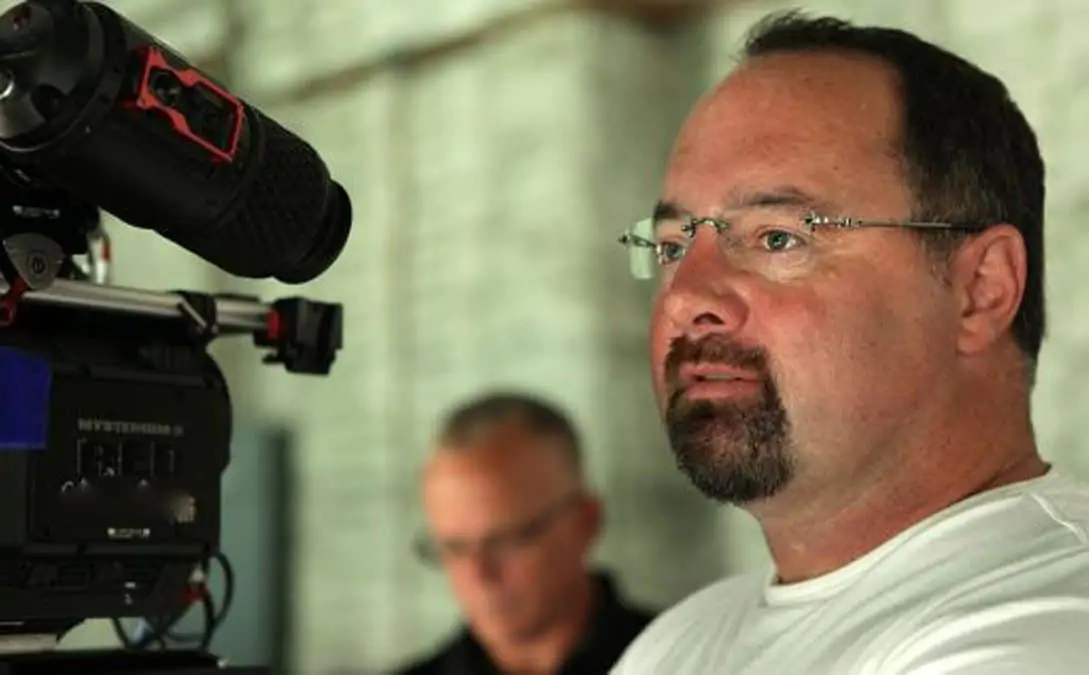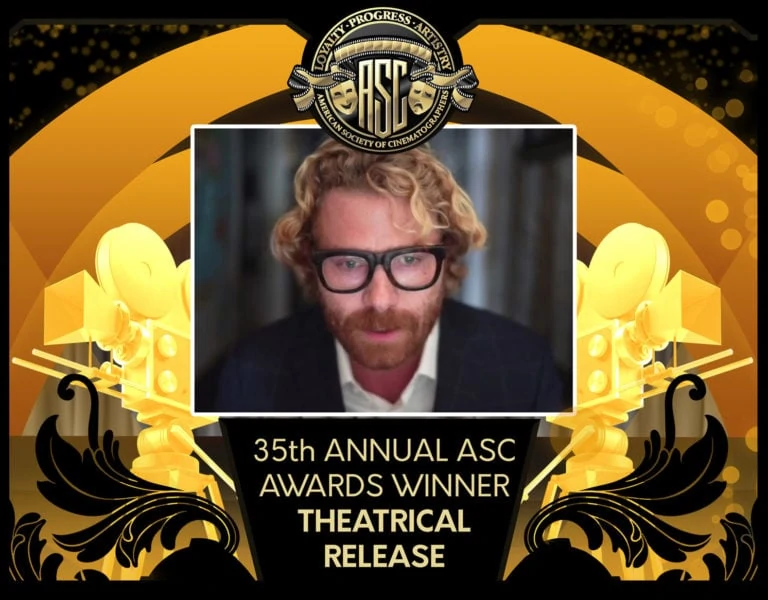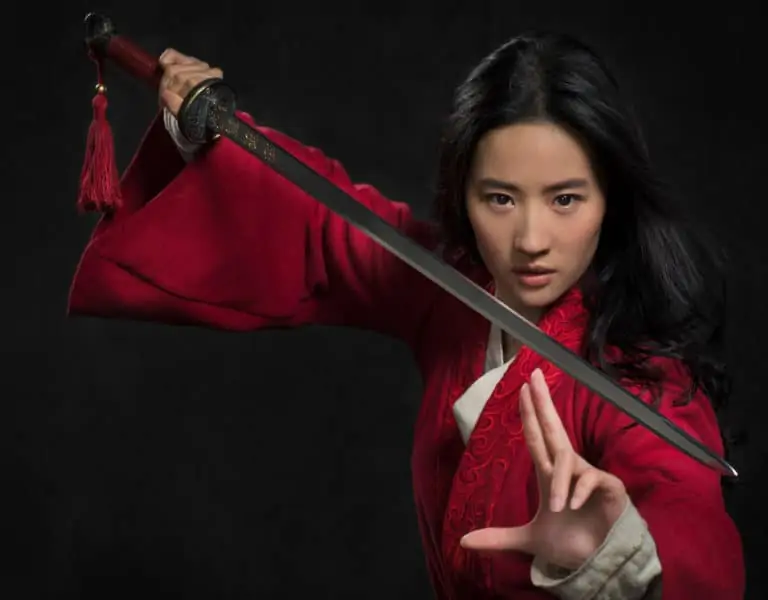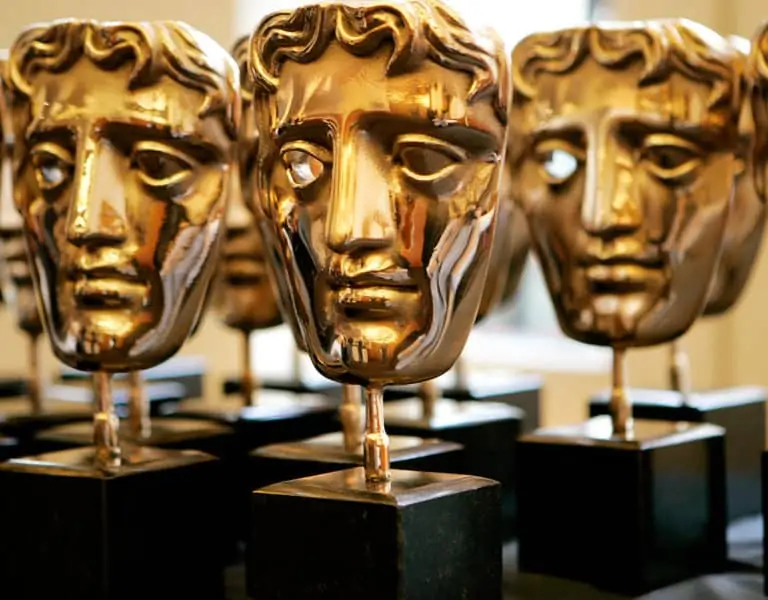Ivy League Isolation
Jeff Cronenweth ASC / The Social Network
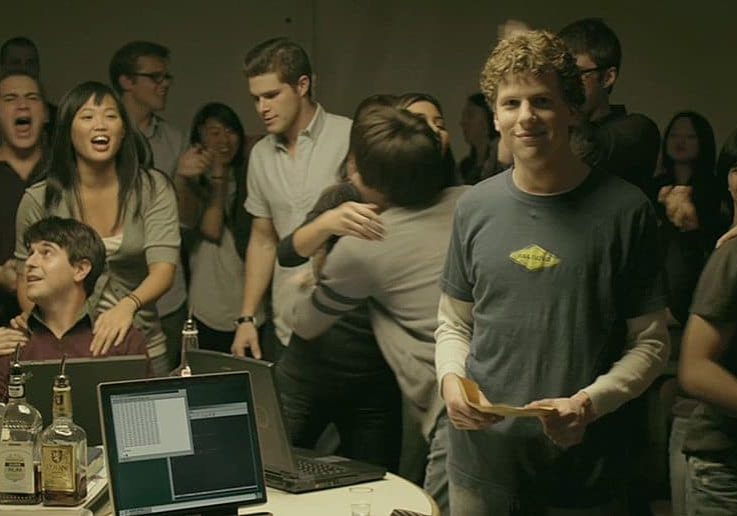
Ivy League Isolation
Jeff Cronenweth ASC / The Social Network
This year marks the 25th anniversary of the ASC Outstanding Achievement Awards. Jeff Cronenweth ASC followed in his father’s footsteps by earning ASC Outstanding Achievement Award and Oscar nominations for The Social Network, as did Jordan Cronenweth ASC for Peggy Sue Got Married in 1986.
The other nominees in both competitions this year were Wally Pfister ASC for Inception, Matty Libatique ASC for Black Swan, Danny Cohen BSC for The King’s Speech and Roger Deakins BSC, ASC for True Grit.
“I’ve always wanted to be a cinematographer,” Jeff Cronenweth says. “I love the camaraderie and life style. My father didn’t encourage me into it, he let me find my own direction, but I think he got a lot of joy out of me choosing this path.” In addition to working with his father, Cronenweth spent time on crews led by Conrad Hall ASC, Sven Nykvist ASC, John Toll ASC and other cinematographers. This was his post-graduate film school.
The Social Network is a David Fincher-directed story about Mark Zuckerberg, the man who founded Facebook while he was a student at Harvard – and the drama which ensued.
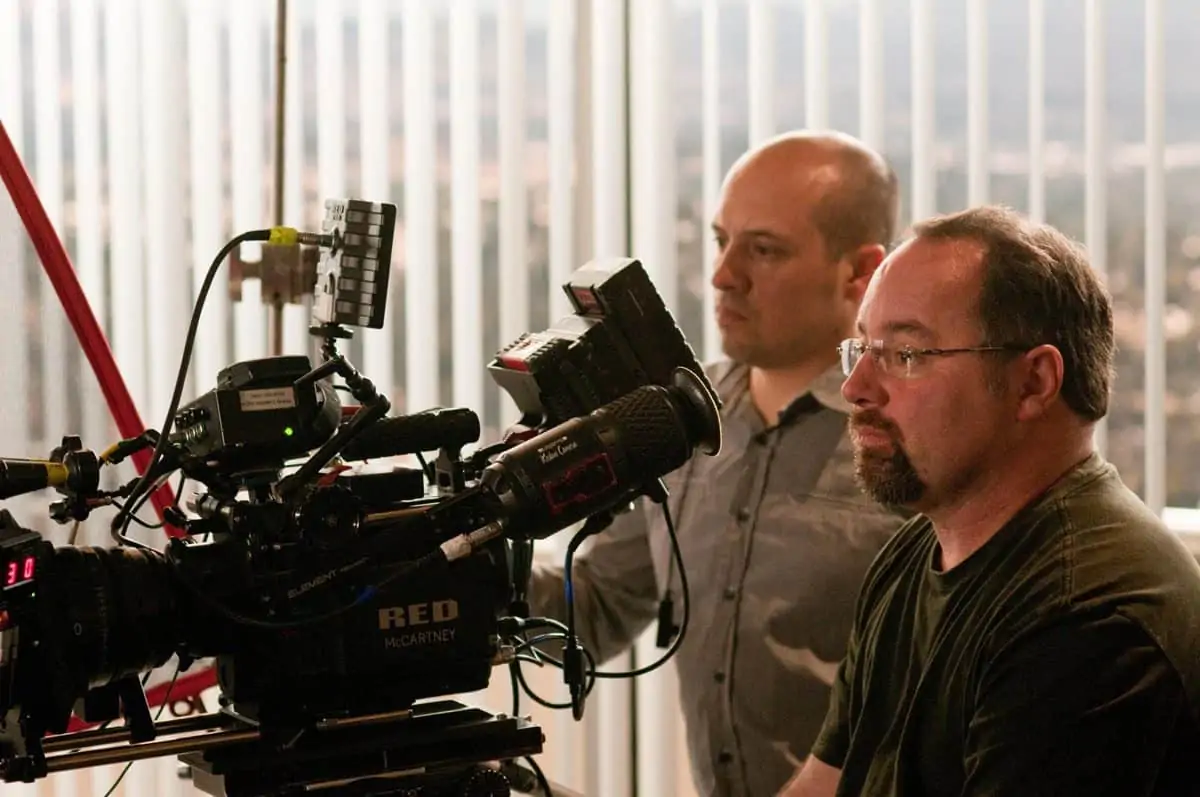
“I was introduced to David by my father when I was on their music video camera crews,” Cronenweth says. “When an insert was needed for a video they shot with Madonna, David said, 'I hope you brought your light meter,' and told me to shoot close-ups of her mouth.”
Cronenweth became camera operator on several films directed by Fincher and was the second unit cinematographer on Se7en and The Game. He has also shot numerous commercials with Fincher. In 1999, they collaborated on Fight Club. It was Cronenweth’s first narrative film and has recently been voted one of the Top Ten Best Shot films of 1998-2008 by Cronenweth’s peers at the American Society of Cinematographers.
The Social Network is their second collaboration on a narrative film. The pair have also recently begun work on an adaptation of The Girl With The Dragon Tattoo.
“I don’t have a Facebook account,” Cronenweth says. “It’s difficult enough for me to find time to answer emails. But my wife does, and I have a 13-year-old girl who is involved with Facebook and other social networking, so it wasn’t a mystery to me. The story around the origins of Facebook is an important part of our culture and our time, and it's a story I could see had to be told.”
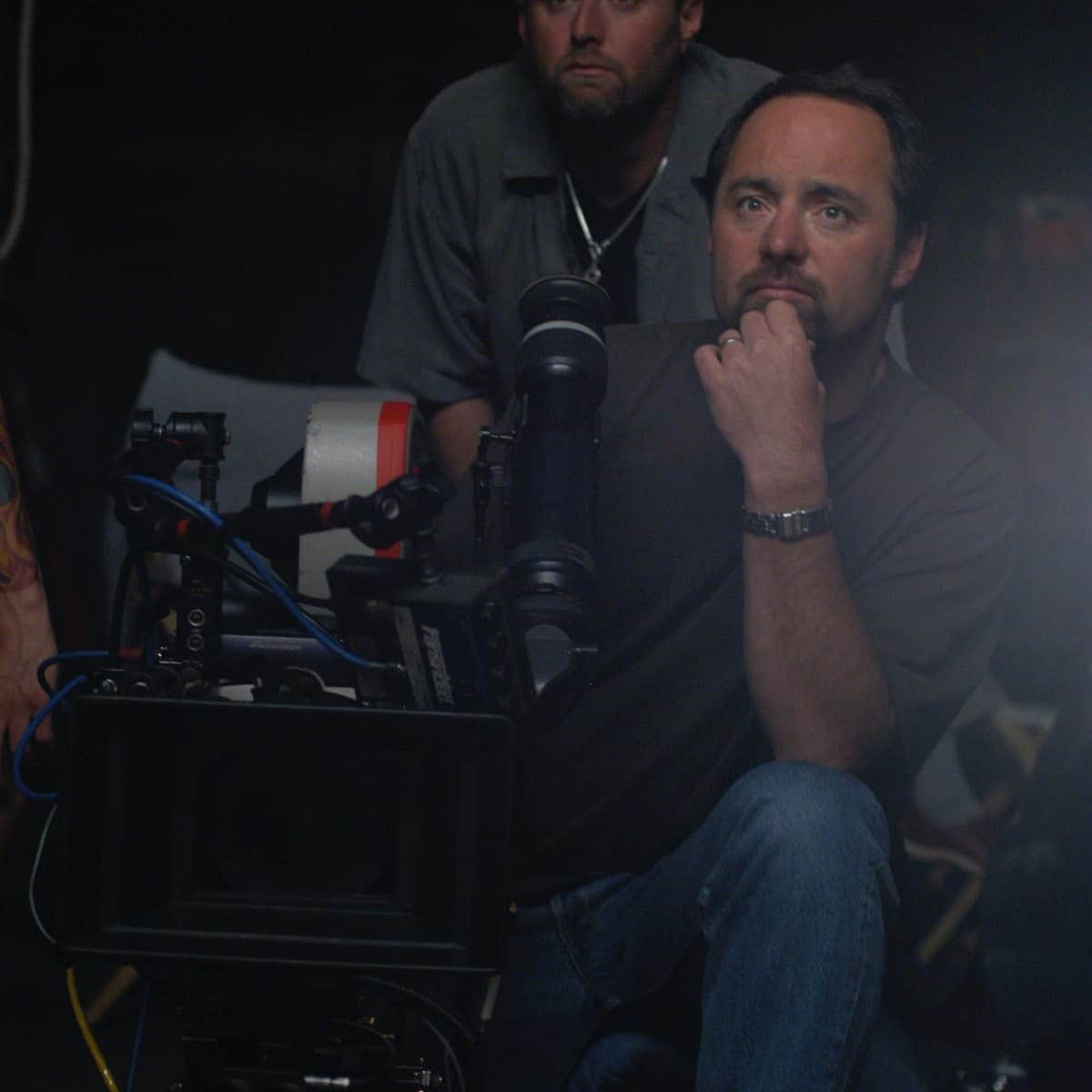
"It's important to remember the subjects of the story are still just kids finding their way in the world, and when you're young and the world is still a party, it has a slightly unreal emotional amplification to it."
- Jeff Cronenweth ASC
The screenplay, authored by Aaron Sorkin, is based on a biographical book by Ben Mezrich, who interviewed Zuckerberg and others who had contributed to bringing Facebook into the public arena. Cronenweth notes that Fincher had to decide whether he wanted interpretive or reality-based cinematography to bring audiences into the places and environments where the contemporary story is unfolding.
“I think we came up with a visual quality which is naturalistic, so it won't wrench you out of the very human drama, but also has a few bold, Expressionistic undertones and some subtle stylization, which acknowledges the hyper-reality of youth – especially within the isolation of the old Ivy League colleges. It's important to remember the subjects of the story are still just kids finding their way in the world, and when you're young and the world is still a party, it has a slightly unreal emotional amplification to it.
“Preparation was the same as it would be on any movie,” he explains. “David and I discussed the personalities of Mark Zuckerberg (played by Jesse Eisenberg) and the other main characters, and how he wanted to present them to the audience. We also visited locations where we would be shooting in Cambridge, Massachusetts, California, Maryland, Dorney Lake, Berkshire, Windsor and Oxfordshire, in England.”
Cronenweth and Fincher discussed creating a contemporary period look, while transporting moviegoers to the locations where the story is unfolding. A sense of place became key when the characters moved between the college and San Francisco's party scenes. Cronenweth had to capture the different feel of these locations, as well as the brighter, more clinical lighting of the deposition rooms, where the nostalgia is dropped in favour of the hard realities of the court case.
Sometimes this contrast is easier said than done. Besides not being permitted access to the Harvard campus (they shot the majority of the college scenes around Cambridge), Cronenweth worked hard at having an interesting visual language emerge from the story's ethical questions.
“The moral compass of the story is murky and grey, and the ethics don't play out with any sense of certainty about the right answers,” says Cronenweth, “so we needed to match this with the visual tones and still have something exciting to look at. We decided to mute the colour pallete quite heavily in the college scenes, and keep a limited depth-of-field to make the place feel claustrophobic in contrast to San Francisco.”
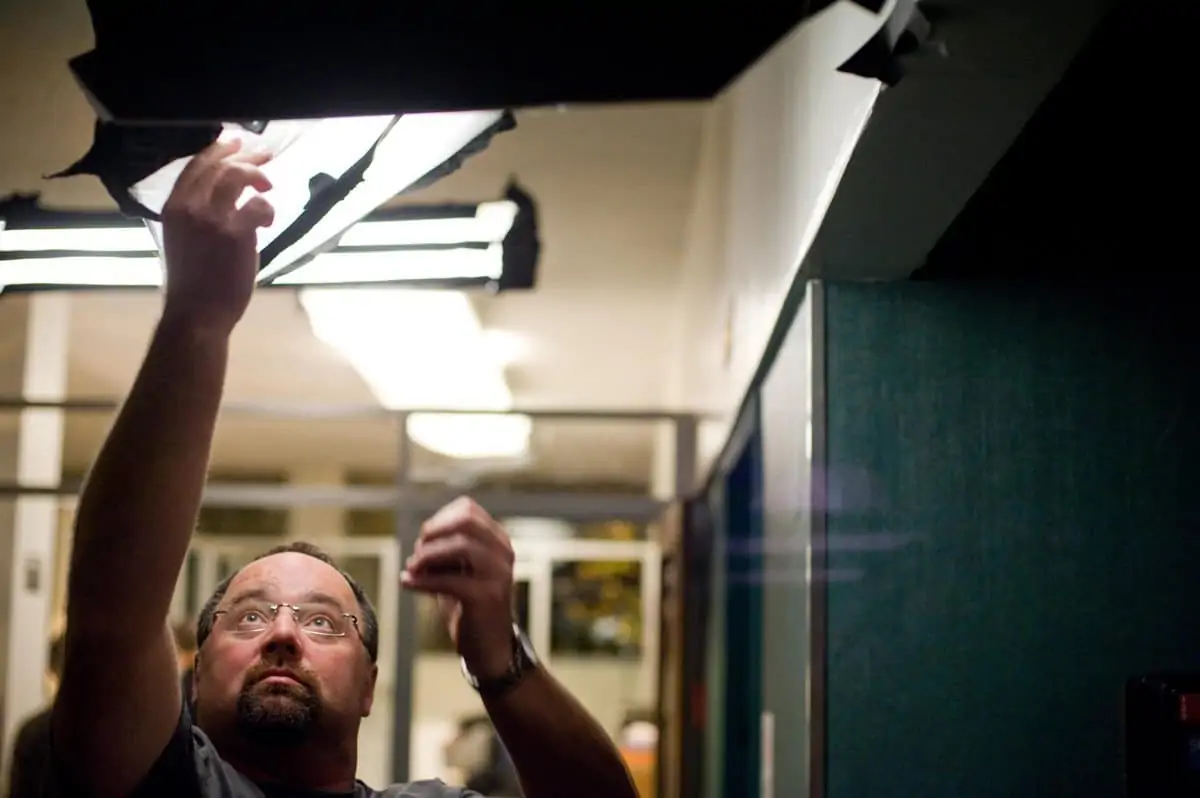
Fincher and Cronenweth were also the first to shoot a feature with the new Mysterium X chip for the Red camera.
“David and I had explored the virtues of various digital cameras while shooting several commercials,” he says. “We decided to use the Red One MX camera with ARRI master prime lenses for The Social Network, partially because it is relatively compact and lightweight. It was the right tool for this project. We wanted the flexibility of covering scenes at practical locations without drawing attention, while capturing a reality-based look composed in 2.4:1 aspect ratio.”
Cronenweth and Fincher were happy with the results from the Red One MX; they are using the camera again for their realization of The Girl With The Dragon Tattoo.
After he blocked scenes and discussed composition with Cronenweth, Fincher was generally in the video village following the action on a video monitor and calling shots.
“David is a very visual director,” Cronenweth says. “He did a masterful job of telling an honest and straightforward story about the people who made Facebook, a reality in the lives of hundreds of millions of people. It's not just about where Facebook came from and how it evolved, it's a story about friendships which led to betrayal and it raises a significant question about what's fair and what isn’t fair. I believe The Social Network sheds some light and will provoke thinking about an important event which is still unfolding in our world today – without making judgements.”




